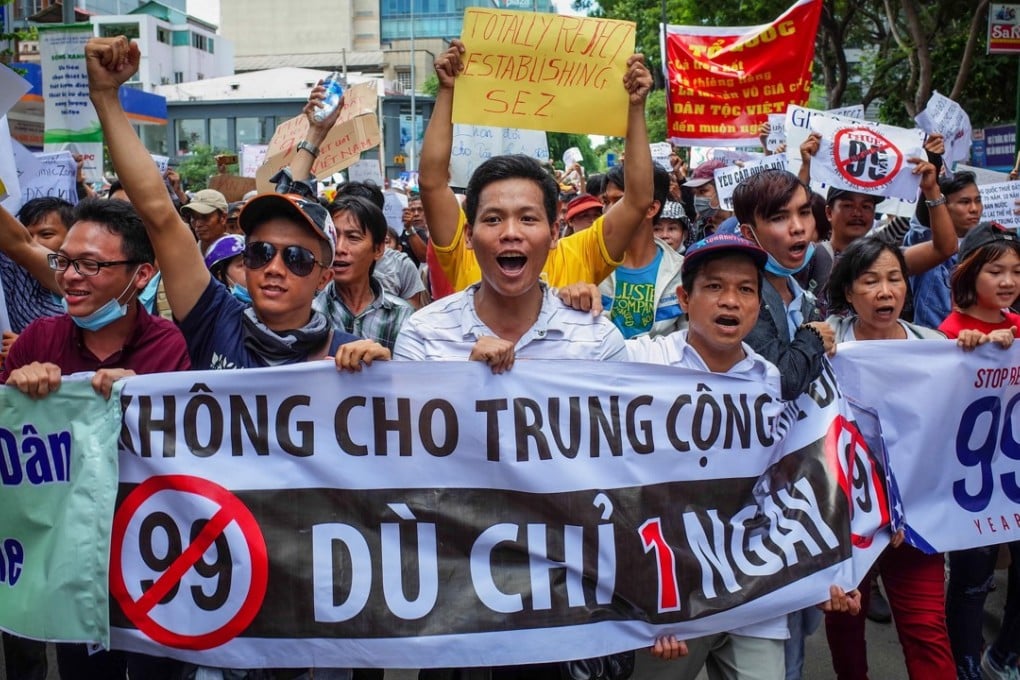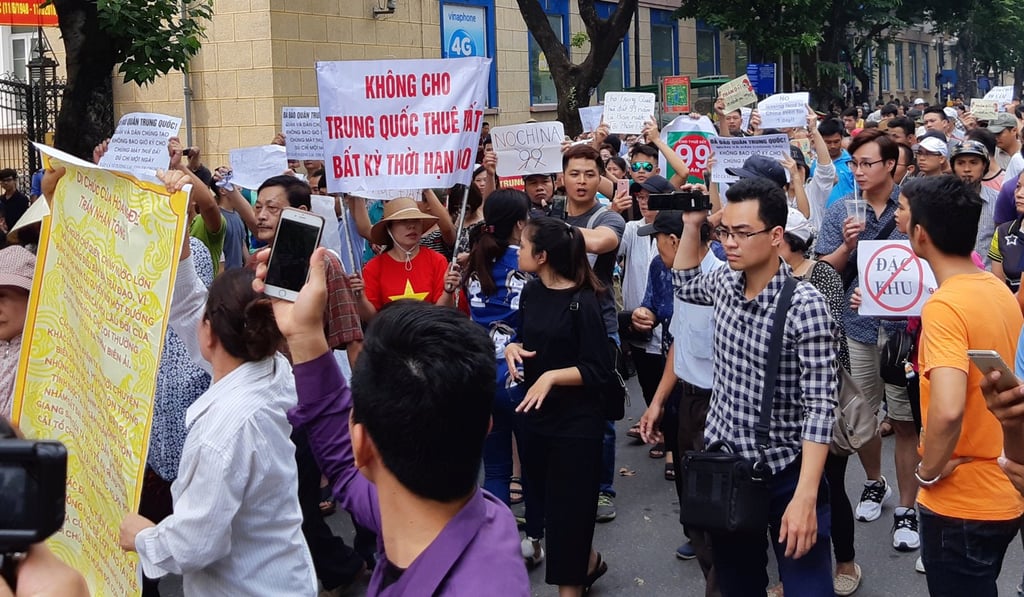Anti-China protests in Vietnam set to aggravate tensions with Beijing
Around 100 arrested during demonstrations over draft law for special economic zones that workers fear will be dominated by Chinese interests

Vietnam’s worst flare-up of anti-Chinese sentiment in years could strain already troubled relations with the country’s powerful neighbour, as the government tries to keep a lid on nationwide protests.
About 100 people have been arrested so far, but on Wednesday hundreds of defiant demonstrators again gathered at Tan Huong Industrial Park in the southern province of Tien Giang, holding up banners with slogans such as “I love the fatherland – don’t let China lease our land”.
Videos posted on social media showed hundreds of workers facing down police at factory gates and marching through the streets.

The anti-China protests – the worst seen in Vietnam since 2014 – began on Saturday at Taiwanese-owned shoe factory Pou Yuen in Ho Chi Minh City, where workers demonstrated over the government’s plan to set up three new special economic zones that would allow 99-year concessions.
The protests spread, and violence erupted at other rallies in southern province Binh Thuan on Sunday.